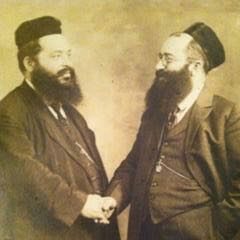Isaac Wall
Umipnei Chatoeinu
Cantor Isaac Wall, whose 90-year career included serving for 47 years as Har Zion Temple’s cantor and nearly 30 years in the same role at Congregation Rodef Shalom in Atlantic City, died Jan. 11. He was 103. “He was the king, he really was, of his craft. What man today can say, ‘For 75 years I led congregations and was the superstar?,’” Rodef Shalom Rabbi Shalom Ever said. “He was the crown jewel of our synagogue.” Wall was born in Poland on Dec. 23, 1917, and moved with his family to Denver in 1919. He received Jewish religious training under the guidance of his father and had already displayed his hazzanut talent by the time the family moved to New York when he was 9 — he often was dubbed a wunderkind, daughter Ahavia Scheindlin said. Wunderkind Isaac Wall, who was known in Yiddish as Isacle Voll | Courtesy of the Wall family.
In New York, Wall studied the Talmud, liturgy and voice and, by 13, was davening as a cantor for the High Holidays in Hartford, Connecticut, including a performance for the governor. Ever noted that Wall’s bar mitzvah invitation referred to him as Hazzan Isaac Wall. Wall served as a cantor for several New York synagogues over the next few years, then took a job in Houston, traveling around Texas to conduct services for the armed forces during World War II. He arrived at Conservative Har Zion in 1944 — after synagogue congregants heard him sing during a visit to the Jersey shore — and further made a name for himself. “He was a lot of the reason I came to the congregation,” said Cantor Eliot Vogel, his successor at Har Zion. Wall had a deep respect for his profession, which was reflected in his modesty, Vogel said. “It wasn’t about the bimah as a stage. It was all about the prayer,” he said. “Many people would say he’s a hazzan’s hazzan, a true pulpit artist.” “He had a beautiful baritone voice and never overdid it,” said son Joshua Wall, adding that many people have told him that when they listen to a cantor now, they always compare that hazzan to his father. “He was part of everyone’s family lives and their important moments.” Over the years, Wall prepared thousands of boys for their bar mitzvahs, Scheindlin said. Those boys never forgot the cantor. “I met them wherever I went in the world,” she said. Wall retired and moved to Ventnor, New Jersey, in 1991, becoming the full-time volunteer cantor at Orthodox Congregation Rodef Shalom shortly thereafter. Wall’s cantorial gifts mixed with an overriding sense of service, even in his later days, Ever said, noting that he braved snow and bad weather despite being urged to stay home. “For a quarter century, he was there every day — at 98, 99, until 100,” Ever said. “We should all learn from him.”
In September 2017, Rodef Shalom honored Wall’s 100th birthday with a tribute dinner. A Jewish Community Voice article about the event quoted synagogue leaders as saying Wall was the first one at Rodef Sholom each morning for davening. His appearances grew infrequent his last couple years, although congregants still brought children to his apartment to receive blessings and prepare for religious life events, Ever said. “He welcomed his home to several of my grandchildren,” said Frank Gelb, a former Rodef Shalom president, who knew of Wall from his time growing up in Har Zion’s original Wynnefield neighborhood. Congregant Raye Felder of Ventnor said Wall had a great sense of humor and enjoyed puns, recalling a time when she brought him a shankbone for Passover from her hometown of Pittsburgh, and he responded, “Shank you very much.” Joshua Wall said that when his father got together with his siblings, they’d speak to each other with a pronounced Irish brogue. Scheindlin said her father was a great mimic and did a spot-on Charlie Chaplin. Wall had a large community following and was often seen walking the Atlantic City boardwalk between his home and the shul. “When people saw him on the boardwalk, they’d always stop him,” she said. Aside from his religious singing, Wall was a fan of many kinds of secular music, including opera, big band, Broadway musicals and even the Beatles, Scheindlin said.
Unfortunately, he became increasingly deaf in his final years and could no longer listen to music, although it didn’t impact his singing. In addition to his cantorial service, he was a founder and past president of the Cantors Assembly and a fellow and founder of the Cantors Institute at the Jewish Theological Seminary. He also taught music, liturgy and the reading of the Torah for 20 years at Solomon Schechter Day School (now Perelman Jewish Day School), which he helped found. Wall’s wife, Sheva, died in 2004. He is survived by daughter Ahavia Scheindlin (Lon Levin); sons Shalom Wall (Kathy Conti) and Joshua Wall (Kathleen Dougherty); a sister, Florence Wall Gallop; 13 grandchildren; and 19 great-grandchildren. Bio by Andy Gotlieb.
